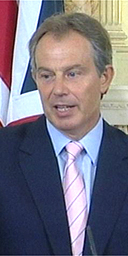The four terrorists who killed 56 people in London on July 7 triggered the bombs themselves by pressing a device similar to a button, senior police sources have told the Guardian.
The discovery scotches the theory that the four British-born men may have been duped into carrying the rucksack bombs on to three crowded tube trains and one bus, unaware they were going to explode.
Initially it was thought the bombs might have been attached to devices on mobile phones, a method used in the Madrid bombings to devastating effect.
This breakthrough - more than six weeks since the attacks - provides police with potentially important clues about the bombers' planning and technical knowhow.
The news that the bomb attacks were carried out with button-like devices triggering the bombs was confirmed to the Guardian by several separate senior police and counter-terrorism sources.
"There were no mobile phone timers on the seventh," one source said. "They were manually activated".
In the failed attacks on July 21, where the bombs were recovered largely intact, the devices were also to be "manually activated", the sources said.
Former anti-terrorism squad bomb expert Tony Dedman said: "It could be a positive push switch, where you push it and the bomb explodes, or a dead man's switch where you push it in and it won't go off until you release it."
The remains of the four July 7 bombers are still being held by police and are continuing to be subjected to forensic tests as officers try to recreate as exactly as possible their positions at the scenes at the moment of detonation.
Shehzad Tanweer, Mohammad Sidique Khan, Hasib Hussain and Jermaine Lindsay died in the attack, as well as their 52 victims and 750 people were injured.
A police source said the aim was to, as near as possible, put the bodies back together to learn "the position they were stood or knelt", when they manually activated the devices which killed them and Londoners in the morning rush hour.
The revelations came as the inquest into the death of Jean Charles de Menezes, who was shot on July 22 at Stockwell tube, heard that officers involved may face criminal proceedings. John Cummins, the Independent Police Complaints Commission senior investigation officer, told the hearing that Scotland Yard had given his team a "comprehensive handover package" on July 27, when the IPCC took over the shooting inquiry. But there was still a "considerable amount of fresh work" to be done.
Asked by John Sampson, the coroner, if he wished to clarify anything, given the press coverage and speculation to date, Mr Cummins said: "There has been enough said. No report will be published until proceedings are complete."
Richard Latham QC, for the IPCC, said there was "no intention of providing what might be described as a running commentary on the progress of the investigation".
He added: "In due course there may, and I emphasise the word 'may', be recommendations that criminal proceedings should be initiated and disciplinary proceedings may arise.
"Inevitably, there will be an inquest and it follows that the IPCC recognises that nothing should be discussed or published which could prejudice this inquest or any potential criminal or disciplinary proceedings."
After the short hearing, which was adjourned until February 23 2006, Harriet Wistrich, solicitor for the de Menezes family, said a public inquiry may be the only way to resolve the issue fully.
Representatives of the Brazilian government will ask the IPCC today to see any CCTV footage which exists of the shooting. Marcio Garcia, from the ministry of justice, who is visiting London this week with deputy attorney general Wagner Goncalves, said: "We expect to see [the tapes]."
At a press conference at the Brazilian embassy in London, conducted mostly in Portuguese, Manoel Gomes Pereira, a senior Brazilian diplomat, said his government was "perplexed" by information in leaks from the IPCC report last week.
But he did not believe British officials or police had tried to cover up the truth about the shooting.
He said: "At this point in time we do not think so, we do not have any reason to feel this." The Brazilian delegation met the Metropolitan police commissioner, Sir Ian Blair, briefly yesterday along with deputy assistant commissioner John Yates.
Today they will visit the crown prosecution service and the IPCC. On Thursday they will have a meeting with the coroner, John Sampson, and they are seeking a meeting with the de Menezes family's lawyer, Gareth Peirce.


